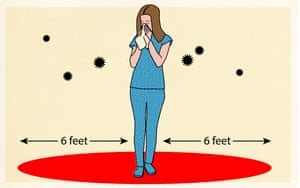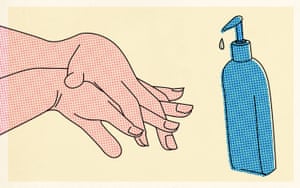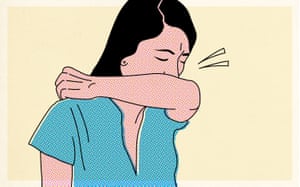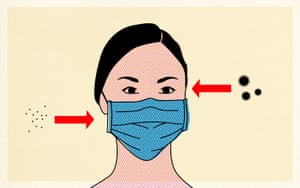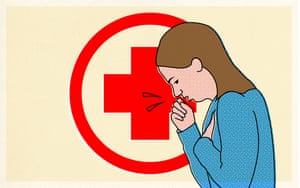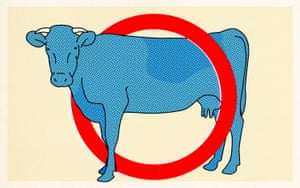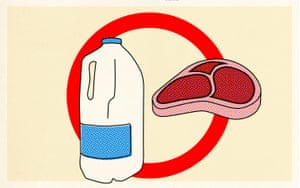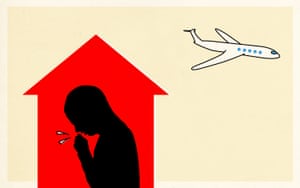VISIT OUR FACEBOOK PAGE LIKE AND SHARE: https://www.facebook.com/Health-FIRST-105251601096385/?modal=admin_todo_tour
What is Covid-19 – the illness that started in Wuhan?
It is caused by a member of the coronavirus family that has never been encountered before. Like other coronaviruses, it has come from animals.
What are the symptoms this coronavirus causes?
The virus can cause pneumonia. Those who have fallen ill are reported to suffer coughs, fever and breathing difficulties. In severe cases there can be organ failure. As this is viral pneumonia, antibiotics are of no use. The antiviral drugs we have against flu will not work. Recovery depends on the strength of the immune system. Many of those who have died were already in poor health.
Should I go to the doctor if I have a cough?
In the UK, the medical advice is that if you have recently traveled from areas affected by coronavirus, you should:
- stay indoors and avoid contact with other people as you would with the flu
- call NHS 111 to inform them of your recent travel to the area
More NHS advice on what to do if you think you have been exposed to the virus can be found here, and the full travel advice to UK nationals is available here.
Is the virus being transmitted from one person to another?
China’s national health commission confirmed human-to-human transmission in January, and there have been such transmissions elsewhere.
How many people have been affected?
As of 14 March, more than 148,000 people have been infected in more than 80 countries, according to the Johns Hopkins University Center for Systems Science and Engineering.
There have over 5,500 deaths globally. Just over 3,000 of those deaths have occurred in mainland China. More than 71,000 people have recovered from the coronavirus.
Why is this worse than normal influenza, and how worried are the experts?
We don’t yet know how dangerous the new coronavirus is, and we won’t know until more data comes in. Seasonal flu typically has a mortality rate below 1% and is thought to cause about 400,000 deaths each year globally. Sars had a death rate of more than 10%.
Another key unknown is how contagious the coronavirus is. A crucial difference is that unlike flu, there is no vaccine for the new coronavirus, which means it is more difficult for vulnerable members of the population – elderly people or those with existing respiratory or immune problems – to protect themselves. Hand-washing and avoiding other people if you feel unwell are important. One sensible step is to get the flu vaccine, which will reduce the burden on health services if the outbreak turns into a wider epidemic.
Have there been other coronaviruses?
Severe acute respiratory syndrome (Sars) and Middle Eastern respiratory syndrome (Mers) are both caused by coronaviruses that came from animals. In 2002, Sars spread virtually unchecked to 37 countries, causing global panic, infecting more than 8,000 people and killing more than 750. Mers appears to be less easily passed from human to human, but has greater lethality, killing 35% of about 2,500 people who have been infected.
These are perilous times...
… and the stakes couldn't be higher. Americans face an epic choice in November, and the results will define the country for a generation. Disinformation on the most critical issues of our time, from elections to public health, is rampant.
Partisan news sources and social media's tsunami of fake news is no basis on which to inform the American public in 2020. There’s never been a greater need for a robust, independent press that relies on facts and science to provide public scrutiny and oversight. Our journalism is free and open for all, but it's made possible thanks to the support we receive from readers like you across America in all 50 states.
Our journalism relies on our readers’ generosity – your financial support has meant we can keep investigating, disentangling and interrogating. It has protected our independence, which has never been so critical. We are so grateful.
We hope you will consider supporting us today. We need your support to keep delivering quality journalism that’s open and independent. Every reader contribution, however big or small, is so valuable.
How does the coronavirus spread?
- The Covid-19 coronavirus outbreak is a new illness and scientists are still assessing how it spreads from person to person, but similar viruses tend to spread via cough and sneeze droplets.
- When an infected person coughs or sneezes, they release droplets of saliva or mucus. These droplets can fall on people in the vicinity and can be either directly inhaled or picked up on the hands then transferred when someone touches their face, causing infection. For flu, some hospital guidelines define exposure as being within six feet of an infected person who sneezes or coughs for 10 minutes or longer.
- Viruses can also be spread through droplets landing on surfaces such as seats on buses or trains or desks in school. However, whether this is a main transmission route depends on how long viruses survive on surfaces – this can vary from hours to months.
- There is anecdotal evidence that the virus can be spread by people before they have symptoms. Some other illnesses such as flu can be passed from one person to another before symptoms occur – but the extent to which this is happening with the new coronavirus is not well understood yet.
How to protect yourself and others
- Wash your hands: wet your hands with clean, running water and apply soap. Lather your hands, including the backs, between your fingers, and under your nails and scrub for at least 20 seconds. Rinse.
- Cover your mouth and nose with a tissue when you cough or sneeze, then throw the tissue in the bin and wash your hands. If you do not have a tissue to hand, cough or sneeze into your elbow rather than your hands.
- Face masks offer some protection as they block liquid droplets. However, they do not block smaller aerosol particles that can pass through the material of the mask. The masks also leave the eyes exposed and there is evidence that some viruses can infect a person through the eyes.
- Seek early medical help if you have a fever, cough and difficulty breathing, and share your travel history with healthcare providers.
- If visiting live markets in affected areas avoid direct, unprotected contact with live animals and surfaces that have been in contact with animals.
- If you have returned from an affected area in the last two weeks, stay indoors and avoid contact with other people for 14 days. This means not going to work, school or public areas.
- If you have returned from an infected area and develop a high temperature, cough, runny nose, sore throat or difficulty breathing do not leave your home until you have been given advice by a doctor.
These are perilous times...
… and the stakes couldn't be higher. Americans face an epic choice in November, and the results will define the country for a generation. Disinformation on the most critical issues of our time, from elections to public health, is rampant.
Partisan news sources and social media's tsunami of fake news is no basis on which to inform the American public in 2020. There’s never been a greater need for a robust, independent press that relies on facts and science to provide public scrutiny and oversight. Our journalism is free and open for all, but it's made possible thanks to the support we receive from readers like you across America in all 50 states.
Our journalism relies on our readers’ generosity – your financial support has meant we can keep investigating, disentangling and interrogating. It has protected our independence, which has never been so critical. We are so grateful.
We hope you will consider supporting us today. We need your support to keep delivering quality journalism that’s open and independent. Every reader contribution, however big or small, is so valuable. https://onlinesteroidpharmacy.com/product/buy-flurazepam-capsules/
VISIT FACEBOOK PAGE LIKE AND SHARE: https://www.facebook.com/Health-FIRST-105251601096385/?modal=admin_todo_tour
PURCHASE SURGICAL FACE MASK FROM OUR ONLINE FACEBOOK PAGE
